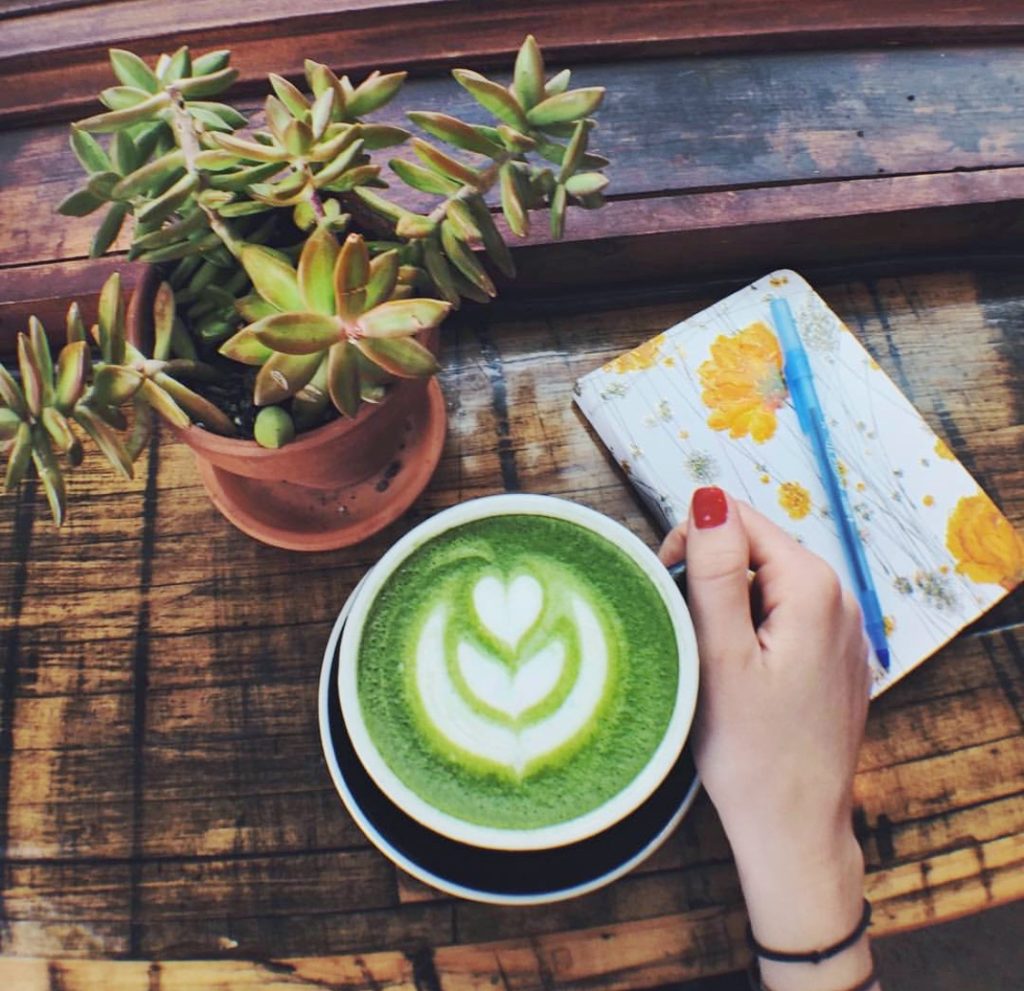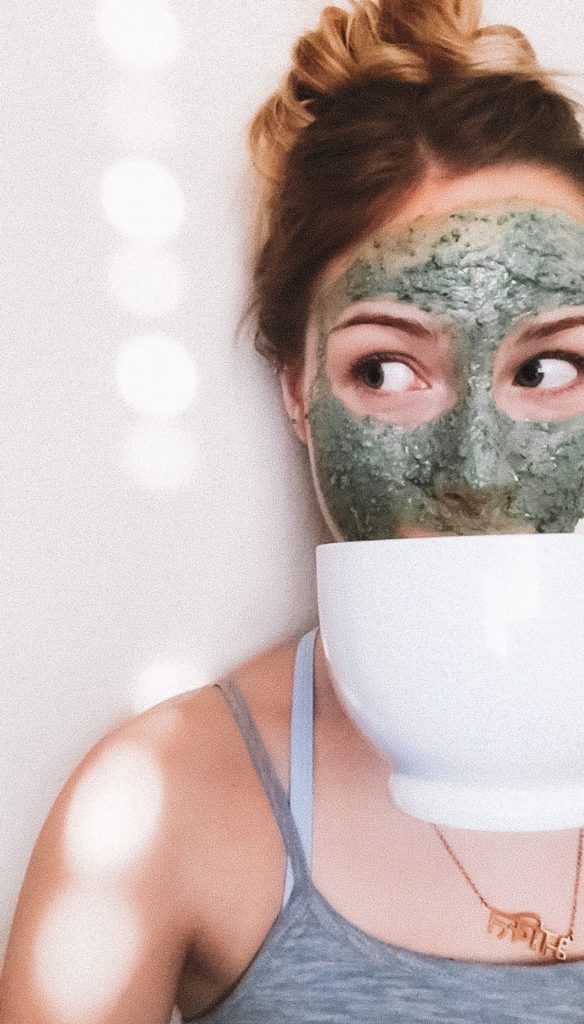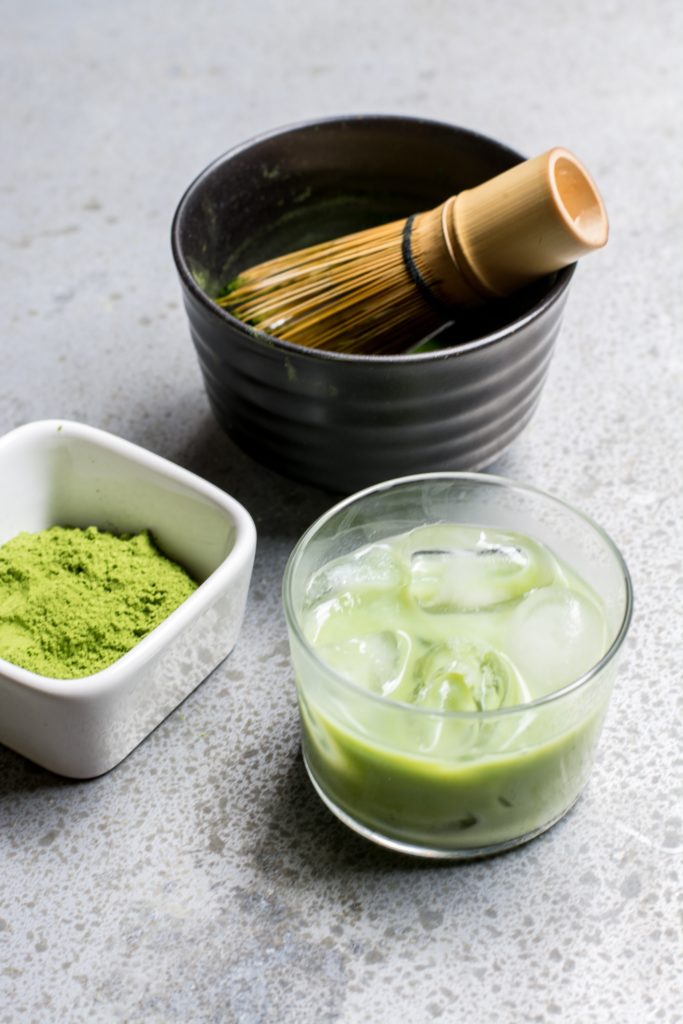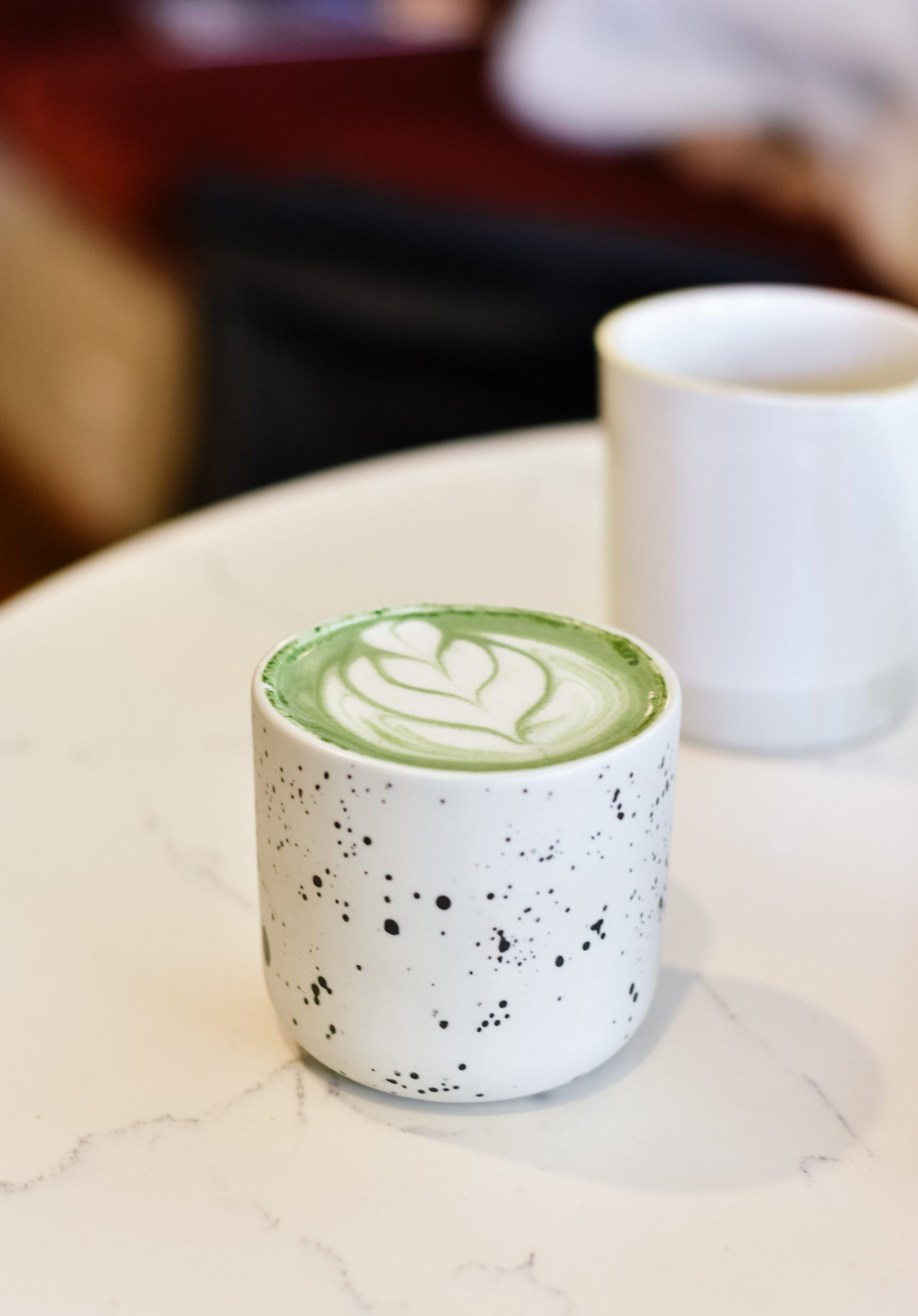Okay… if you know me, you know that I am obsessed with MATCHA!
I love the texture, the flavor, the smell, the preparation and of course that beautiful green color! But matcha isn’t just a pretty, trendy drink.. oh no.. This drink is packed with loads of HEALTH BENEFITS! But i’m getting ahead of myself.. first of all, let’s talk about what matcha is.

ALL ABOUT MATCHA
Matcha is a finely ground powder of specially grown, high-grade, green tea leaves. Traditionally, this potent powder was/is used for Japanese tea ceremonies referred to as The way of tea. The way of tea is centered around the meditative practice of preparing and presenting matcha, and was used by zen buddhists and the samurai to mimic many of their core principles: harmony, tranquility, purity, and respect (1).
Your typical tea leaves are bagged and steeped in hot water to extract of the flavor and chemical properties; however, matcha is unique in the fact that it is the only tea that is whisked directly into hot water so that suspended particles are present with each sip. The direct consumption of the ground tea leaves themselves is what makes matcha such a potent provider of health benefits!

MATCHA’S HEALTH BENEFITS
- ANTIOXIDANTS AND IMMUNITY-Matcha is a powerhouse for antioxidants! In fact, matcha surpasses acai, blueberries, dark chocolate, and pomegranate on the ORAC scale (oxygen radical absorbance capacity-a measure of the antioxidant capacity of food)(2). The high levels of antioxidants are attributed to the two main polyphenols (compounds found in fruit, veggies, coffee, etc. that are rich in antioxidants)- Epigallocatechin gallate (EGCG), and catechin. Antioxidants such as these, help protect us from signs of aging, help lower cholesterol, and aid in the prevention of many diseases including several types of cancers, and heart disease. EGCG’s also boost our immune system, protecting us from bacterial and viral infections (3). Talk about a great drink to sip on during the cold and flu seasons!
- ENERGY AND METABOLISM- Did someone say caffeine? Matcha not only provides you with that extra boost of energy in the morning, but it also helps you sustain energy levels and mental clarity throughout your day! No mid-day crashes, and if your sensitive to caffeine, like myself, the best part is.. no caffeine shakes! That’s because matcha also contains an amino acid called L-Theanine which in tandem with caffeine, helps to boost your mood, energy and focus while simultaneously calming your brain, muscles, and blood vessels. Not only do you get a stable and extended boost of energy, but the caffeine and EGCG polyphenols also work together to crank up your metabolism and fat burning power! (4) Woo!
- DETOXIFICATION– Matcha is a shade-grown tea that is rich in chlorophyl- a natural detoxifier. Chlorophyl assists in the elimination of chemicals, heavy metals, and toxins (both from food and environment) from our bodies. Believe it or not, the antioxidants found in matcha also help reduce O2 stress which helps protect us against neurodegenerative diseases (such as Alzheimer’s), heart disease, atherosclerosis (hardening of blood vessels), cancer, and diabetes (5).
- BRAIN HEALTH AND MENTAL CLARITY– As mentioned before, the caffeine and L-Theanine found in matcha contribute to mental clarity and sustained energy. In fact, zen buddhists used to drink matcha before entering into long meditations! Practitioners who used matcha prior to meditations, claimed to experience a greater sense of energy, focus, and a deeper spiritual connection coupled with increased relaxation. Currently, research supports these claims, and provides evidence for the association of the phytochemicals found in matcha and greater mental clarity, cognitive function, memory and relaxation. (6)
- CLEAR SKIN– Yes, it even does wonders for your face! Matcha helps reduce the size of pores, fights acne, reduces redness and rosacea, improves complexion and elasticity, and even protects against UV damage! (7) Matcha is 100% natural so it is safe to use on all skin types! I LOVE face masks and personally use my homemade matcha mask at least once a week. Its super easy and my skin loves it!
My Matcha Face Mask Recipe:
- 1-3 tsp. of Matcha Powder
- 1-2 tsp. of Honey ( I use MANUKA honey)
- Optional: 1 tsp. baking soda, 1 tsp coffee grounds/sugar/salt (for exfoliation), essential oils
*The photo below has matcha, coffee grounds, and honey*

Basically, matcha is the best drink ever! It’s going to give you energy, clear your body of toxins, increase mental clarity, help your skin, and it tastes bloody brilliant!
Convinced? Ready to make your own MATCHA LATTE? Here’s how!
MY SUPER EASY MATCHA LATTE RECIPE
- Add 1/2-1tsp of Matcha Powder
- Pour 2 ounces of 180° water over your matcha power in a mug
- Use a whisk to air-ate and blend the matcha. Wait until there is a frothy layer on top
- Pour steamed milk of your choice on top ( My Favorites are Elmhurst 1925 Barista Edition Oat Milk, and Oatly! I buy both brands at sprouts!)
- Add vanilla, stevia, coconut sugar, cinnamon, or any other add ins of your choice!
- Enjoy!

Never bought matcha before? Here are some things to keep in mind:
- Matcha lasts longer and holds its potency better in a tin can or airtight container. Try to look for a brand that supplies their matcha one of these options rather than a bag, or buy your own tin from Amazon so you can transfer your matcha to it for better keeping.
- Unfortunately, price does matter. You can buy matcha at basically any grocery store now; however, higher price points usually are accompanied by higher grade matcha. Ceremonial matcha is slightly more expensive, between $30 and $50. But here’s the good news! Matcha lasts a while! Each serving only requires a tsp of powder! Buying your own is still cheaper than buying a single matcha latte from your local coffee shop.
- For my Starbucks drinkers. I am sad to tell you that the Starbucks matcha is not the same quality, nor offers the same benefits. The powder they use is full of sugar, flavoring, matcha, preservatives and green tea leaves. Your matcha powder should be 100% matcha.. aka fully ground green tea leaves. According to Starbuck’s nutritional facts, one matcha latte can range anywhere from 14g-43g of sugar! So… if a traditional matcha is made with ~1tsp of powder that would mean ~3-10 tsp of sugar were added by Starbuck’s measure.
- Buying out? Live in Fort Collins? Hit up BINDLE for an oat milk matcha latte with no sweeter… This is my favorite in town!
- Look for brands that get their matcha from Japan-where 80 percent of the product is produced. The main supplying regions are Uji, in Kyoto prefecture, and Nishio, in Aichi prefecture.

Spirit Tea- My Favorite Brand to Purchase From
While I have bought matcha from a variety of companies, my current and favorite brand is SPIRIT TEA.
Spirit tea shows you where the matcha was grown, when it was harvested, highlights the specific variety, and even tells you who the producer was! Knowing this information makes me feel more connected to the product, and grateful for the farmers- whose names and pictures are provided!
Here is the link to their site- Check them out! https://spirittea.co/collections/matcha-tea
Enjoy this post? Have a question? Be sure to comment below!
References:
- MATCHA ORIGINS. (n.d.). Retrieved November 28, 2019, from https://www.teatulia.com/tea-varieties-101/what-is-matcha.html.
- ORAC VALUE COUNTS FOR 7 ANTIOXIDANT RICH FOODS. (n.d.). Retrieved November 28, 2019, from https://ujido.com/blogs/matcha-insider/orac-value-counts-for-7-antioxidant-rich-foods
- Steinmann, J., Buer, J., Pietschmann, T., & Steinmann, E. (2013). Anti-infective properties of epigallocatechin-3-gallate (EGCG), a component of green tea. British journal of pharmacology, 168(5), 1059–1073, from https://www.ncbi.nlm.nih.gov/pmc/articles/PMC3594666/
- Hodgson, A. B., Randell, R. K., & Jeukendrup, A. E. (2013). The effect of green tea extract on fat oxidation at rest and during exercise: evidence of efficacy and proposed mechanisms. Advances in nutrition (Bethesda, Md.), 4(2), 129–140. from, https://www.ncbi.nlm.nih.gov/pmc/articles/PMC3649093/
- Arab, H., Mahjoub, S., Hajian-Tilaki, K., & Moghadasi, M. (2016). The effect of green tea consumption on oxidative stress markers and cognitive function in patients with Alzheimer’s disease: A prospective intervention study. Caspian journal of internal medicine, 7(3), 188–194
- Dietz, C., & Dekker, M. (2017). Effect of Green Tea Phytochemicals on Mood and Cognition. Current Pharmaceutical Design, 23(19). Retrieved from https://www.ncbi.nlm.nih.gov/pubmed/28056735
- OyetakinWhite, P., Tribout, H., & Baron, E. (2012). Protective mechanisms of green tea polyphenols in skin. Oxidative medicine and cellular longevity, 2012, from https://www.ncbi.nlm.nih.gov/pmc/articles/PMC3390139/






What a great read!
So happy you enjoyed it Ryan!! lot of love!